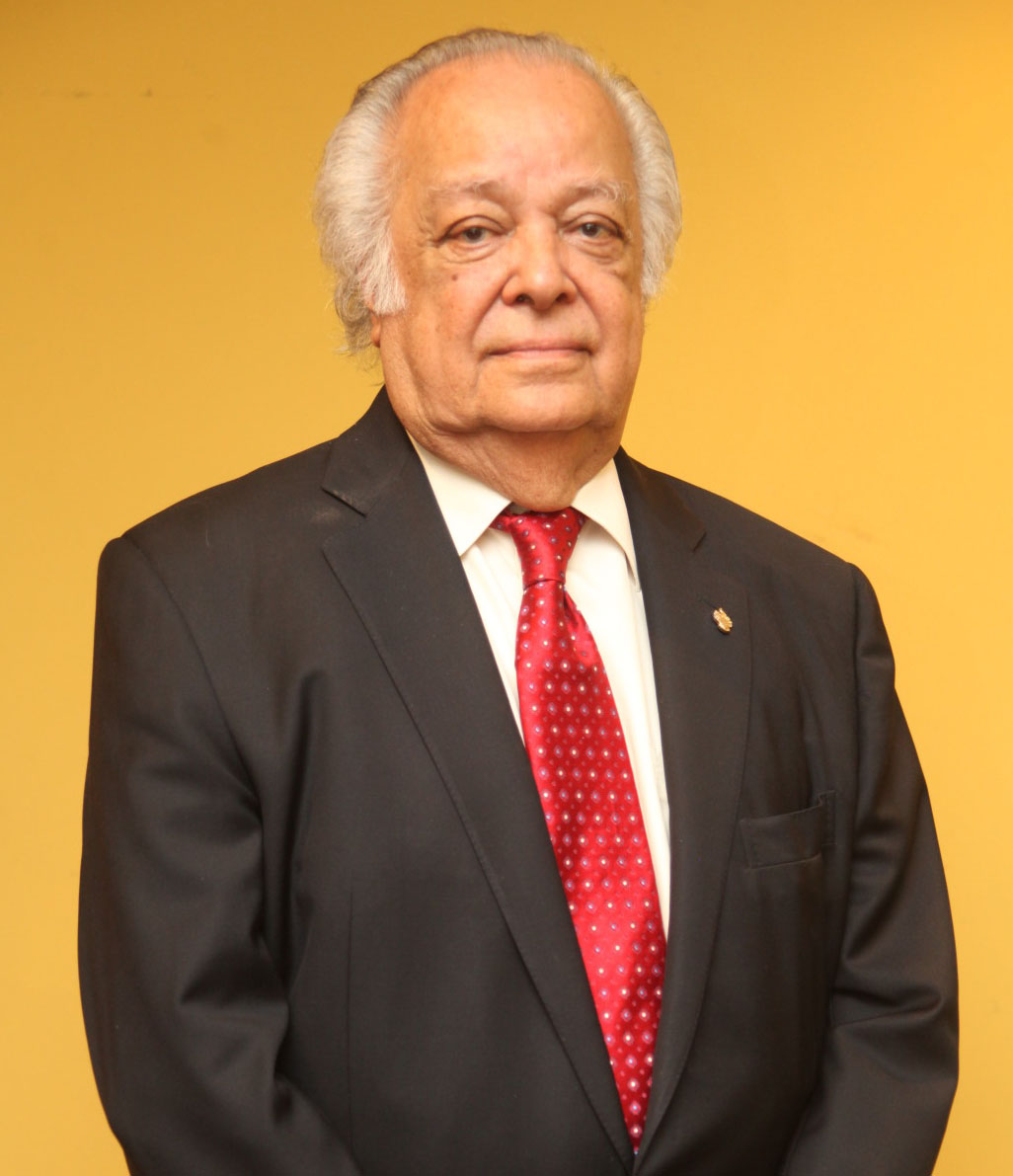Long-term consultant to the government Sir Shridath Ramphal has refused to discuss his role in the controversial Bridging Deed signed by government with ExxonMobil and its partners in 2016, for which he performed the role of Escrow Agent.
The Bridging Deed purported to keep alive the 1999 Petroleum Agree-ment and provided for the signing of a New Petro-leum Agreement with ExxonMobil’s subsidiary Esso Exploration and Pro-duction Guyana Limited (EEPGL), and partners Hess Guyana Exploration Limited and CNOOC Nexen Petroleum Guyana Limited.
However, attorney and activist Christopher Ram has pointed out, among other things, that while the Deed provided for the signing of the New Petroleum Agreement on the date of the Bridging Deed, the New Petroleum Agreement had already been signed and executed.
For this and other reasons, he has contended that the document is legally questionable.
Ramphal was approach-ed by Stabroek News two Thursdays ago on the sidelines of the recommissioning of Ramphal House and as he made his way into a meeting with Minister of Foreign Affairs Dr Karen Cummings and Foreign Service Institute Director, Ambassador Ronald Austin.
“I am not saying anything on that,” Ramphal said, when the question was put to him.
Ram has said that Ramphal should answer about his role.
“Why did he not carry out his obligation to ensure that the conditions of the Bridging Deed were met by both sides? As a beneficiary of the public purse, did he not consider himself as having any obligation, fiduciary or otherwise, to the people of this country to see that undertakings made in their interest are honoured?” Ram has said.
According to the Bridging Deed, Ramphal agreed to hold the documents and Ram said that it is still unclear whether he performed any other functions in connection with the Bridging Deed or the Petroleum Agreement and how he was compensated by the Government of Guyana.
It has been bandied that the former Minister of Foreign Affairs has been paid more than US$1 million for his role as the Escrow Agent.
In late December of 2017, and following mounting public pressure over the US$18 million signing bonus it collected and remained quiet about for over a year, the APNU+AFC government released the contract this country signed with EEPGL.
However, to date, it has not made the Bridging Deed public.
Ram has highlighted several issues with the Bridging Deed.
The Bridging Deed describes the contract area for the 2016 Agreement as the Stabroek Block, “being the area covered by the 1999 Agreement.” Minister of Natural Resources Raphael Trotman had represented the government in signing the deed.
“Someone forgot to draw to Trotman’s attention that a new licence is expressly prohibited under section 22 (2) of the [Petroleum Exploration and Production Act] which states in mandatory language that “A petroleum prospecting licence shall not be granted to an applicant in respect of a block which is, at the time the application for the grant of the licence is made, comprised in a licence already granted.” It is clear then that no amount of legal gymnastics could circumvent this express provision prohibiting a second bite of the cherry,” Ram contended.
Saying that the government is in a catch 22 dilemma, Ram said, “if it argues, as it does in some places, that the 1999 Prospecting Licence had not expired at the time of the Application for the 2016 Licence, then section 22 (2) applies and there could be no second prospecting licence. And if it claims that the 1999 Stabroek Licence was expired, as Attachment “A” to the Bridging Deed indicates, it has two formidable hurdles.”
“The first is that its purported Relinquishment is meaningless since under section 28 of the Act, relinquishment is only permissible “at any time when the licence is in force”. The second is that Attachment “A” to the Bridging Deed refers to the “expired Stabroek Licence Area”. That in my view makes the Deed ineffective since the 2016 Agreement could not be linked to a dead anything,” Ram pointed out.
He observed that Trotman has argued that the Bridging Deed is like a savings clause and is quite normal. “What Trotman does not seem to realise is that a savings provision has to be expressly permitted in legislation, or in some higher document, not in any agreement or instrument of lesser status,” Ram declared.
He highlighted that the 2016 Bridging Deed not only allows the three oil companies all the benefits under the 1999 Agreement, including pre-contract costs, and for the government to pay their taxes in Guyana, but for those and enhanced benefits to run unchanged to 2056.
“No Parliament until then will have the power to make any law adverse to the interest of the oil companies, without compensating them. Nor can the Government stop paying their taxes to the GRA for them. It probably bears reminding that all three companies are incorporated in offshore tax havens and are merely registered in Guyana,” Ram emphasised.






